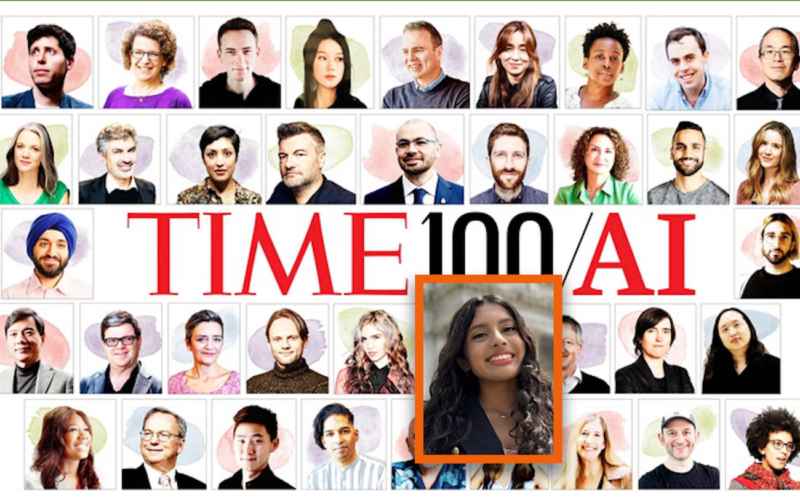They include teenager Sneha Revanur, the youngest individual in the compilation, along with Humane Intelligence CEO and co-founder Rumman Chowdhury, venture capitalist Vinod Khosla’s son Neal, billionaire brothers Romesh and Sunil Wadhwani; and many others.
Time magazine has unveiled its inaugural “Time AI 100” list, recognizing individuals who are actively involved in the field of artificial intelligence (AI) and play crucial roles in determining its applications. Notably, several Indian Americans are featured on this list, spanning various categories.
Among those acknowledged is 18-year-old Sneha Revanur, who stands as the youngest recipient. She founded Encode Justice, a youth-led civil-society group focused on AI, and advocated for more young voices in AI regulation. Neal Khosla, CEO and co-founder of Curai Health, a telehealth startup powered by AI, is another notable inclusion. Curai Health is on a mission to make comprehensive health information accessible via AI.
In the ‘shapers’ category, Romesh and Sunil Wadhwani, the billionaire brothers behind Wadhwani AI, are recognized for their efforts in utilizing AI to address global development challenges. They’ve invested $30 million in creating a nonprofit institute focused on scalable AI solutions in sectors such as healthcare, education, and agriculture.
Tushita Gupta, CTO of Refiberd, is highlighted for her work in AI technology. Refiberd seeks to accurately identify materials in textiles and has raised substantial seed funding for its projects.
In the ‘innovators’ section, Manu Chopra, CEO of Karya, is recognized for his nonprofit that pays workers well and repeatedly for their contributions to AI projects. He focuses on collecting datasets for Indian languages that are underrepresented in the AI field.
The ‘thinkers’ category features individuals such as Rumman Chowdhury, founder of Humane Intelligence, which specializes in AI system red teaming. Pushmeet Kohli, who leads Google DeepMind’s AI for Science project, is also acknowledged for his contributions to AI research.
Arvind Narayanan, a Princeton University computer science professor, and Sayash Kapoor, his Ph.D. student, are recognized for their work on AI skepticism, with a book on the topic slated for release in 2024.
Kalika Bali, a researcher at Microsoft Research India, is committed to making the AI field inclusive for marginalized languages. She envisions a world where language is not a barrier to technology access.
Lastly, Shakir Mohamed, a researcher at Google DeepMind and co-founder of Deep Learning Indaba, focuses on AI research that benefits local communities and addresses societal needs.
The Time AI 100 list reflects the diverse and influential contributions of these individuals to the field of artificial intelligence.


